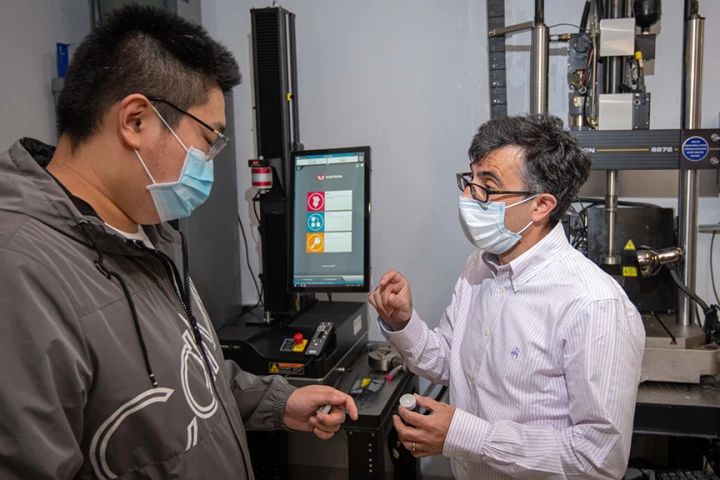Worcester Polytechnic Institute
-
We have seen some interesting developments around what's known as self-healing concrete that repairs its own cracks, and scientists have now demonstrated an exciting new form of this that makes use of an enzyme found in human blood.
-
In order to monitor a sick infant's blood oxygen levels, the baby typically has to wear sensors that are hard-wired to a large bedside device. Soon, however, a wireless optical sensor could free such infants up, even allowing them to be taken home.
-
Students at Worcester Polytechnic Institute (WPI) are helping to combat a major environmental threat by designing an autonomous underwater robot that can hunt for invasive lionfish without the need for a human operator.
-
A team of mechanical engineers at the Worcester Polytechnic Institute is working on a new electrical cooling system that has no moving parts. Already being tested aboard the International Space Station, the electrohydrodynamic cooler uses electrically charged fluids to carry away heat.
-
When performing in vitro fertilization, it's important to use the "best" sperm possible. And while there are already sorting methods that select the fastest-swimming sperm, a new microfluidic device also ensures that they're the healthiest.
-
When 18 malaria patients in the Congo failed to respond to conventional treatments, doctors knew they had to act fast – and try something different. So instead of turning to more synthetic drugs, they turned instead to nature and found a solution that delivered remarkable results.





